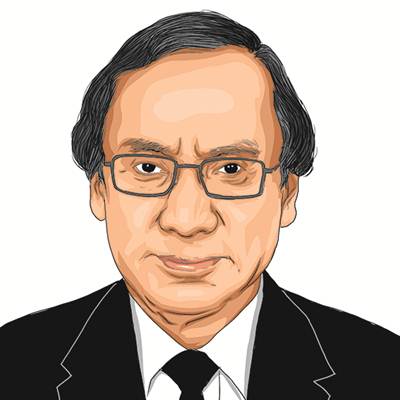Opinion Closure on Kanishka
Finally,the bombing is seen as part of Canadas own history...
What 9/11 was for the US and 26/11 for India,6/23 should have been for Canada,except that it took them 25 years to realise it. But they have finally recognised it as such,with precious help from John Major,a retired judge of the Supreme Court,who headed the special inquiry commission on the terrorist bombing of Air Indias flight 182 the Emperor Kanishka on June 23,1985.
In his 3,200-page report,Justice Major was brutally candid,terming the bombing as a Canadian atrocity. This tragedy,resulting in the killing of 331 people 300 of whom were Canadian citizens was seen more as a chapter in the Khalistanis war against India than an episode in the contemporary history of mainstream Canada. Major stressed that for too long the bombing was somehow relegated outside the Canadian consciousness.
Whatever may be those perceptions of the past,Prime Minister Stephen Harper,who had appointed the Major Commission in 2006,has done a great service to Canada by bringing about an empathetic closure to the monumental tragedy. At a special event in Ottawa on June 17,he addressed a group of families of victims and others and,through them,the Canadian nation. Not mincing his words,he called the bombing the worst act of terrorism in Canadas history.
More importantly,the prime minister assured Canadians that his government would respond positively to some of Majors recommendations,such as the need to render an official apology and to grant compensation to victims families. He further promised that other recommendations would be accorded additional study and consideration. In a sincere gesture to reach out to the affected families,he called June 17,the day the report was released,as the day of remembrance and a bitter-sweet day. Several families echoed this sentiment later even as they emphasised the need for speedy implementation of the recommendations.
The more difficult part of the report relates to systemic shortcomings of Canadian security agencies. Justice Major observed: A cascading series of errors contributed to the failure of our police and security forces to prevent the tragedy. The Canadian government needs to review its security system and take necessary remedial measures,thereby overcoming what Major called the culture of complacency.
The 80s perhaps represented an age of innocence for the Canadian polity when it came to international terrorism. The Sikh community,as part of the larger Indian diaspora,lived peacefully in Canada,making its manifold contribution to their adopted land. But the problems in Punjab,especially after 1984,had a direct impact on Sikh communities residing in several Western countries: for years thereafter,Canadian politicians and officials were inclined to view themselves as a detached,third party in a feud that unfolded between some elements of the Sikh community in Canada on the one hand,and India and its representatives on the other.
Extremist elements used and misused the Canadian system in order to push their own agenda. As the clock ticked away for the searing tragedy and when it actually took place on that fateful day in June 1985,security officials were found wanting and quite unprepared to handle its aftermath.
The scene had changed considerably by the time I had the opportunity to serve in Toronto. An increasing number of members of the Sikh community began to understand better the nature of terrorism in Punjab and the position of the Indian government. The iconic Royal Canadian Mounted Police (RCMP) did its own balancing act by providing effective security to senior Indian diplomats but,at the same time,permitting demonstrations and agitational activities on our national days,that is,August 15 and January 26. What the RCMP was like in the 80s I do not know; but by the 90s,it came across as a professional,competent and citizen-friendly security force.
Justice John Major has not only presented a penetrating analysis of a highly complex subject,but he has also shown his creativity. While recommending that Canada should draw appropriate lessons from the tragedy,he has suggested that the government should set up a new academic research centre in memory of the Air India flight victims which should be named the Kanishka Centre. Hopefully,it will focus on studying counter-terrorism,conflict resolution,the role of new immigrants in Canada and other aspects of growing India-Canada relations.
When Prime Minister Manmohan Singh visits Toronto in a few days,he should consider expressing appreciation for the Major report and Prime Ministers Harpers support for it. He could also express interest in the proposed Kanishka Centre. Many in India would be happy to join the Canadians in ensuring a lasting closure to this tragic episode and start focusing on significant stakes in the multi-dimensional relationship linking the two countries.
The writer served as Indias consul general in Toronto in the 1990s.
express@expressindia.com





